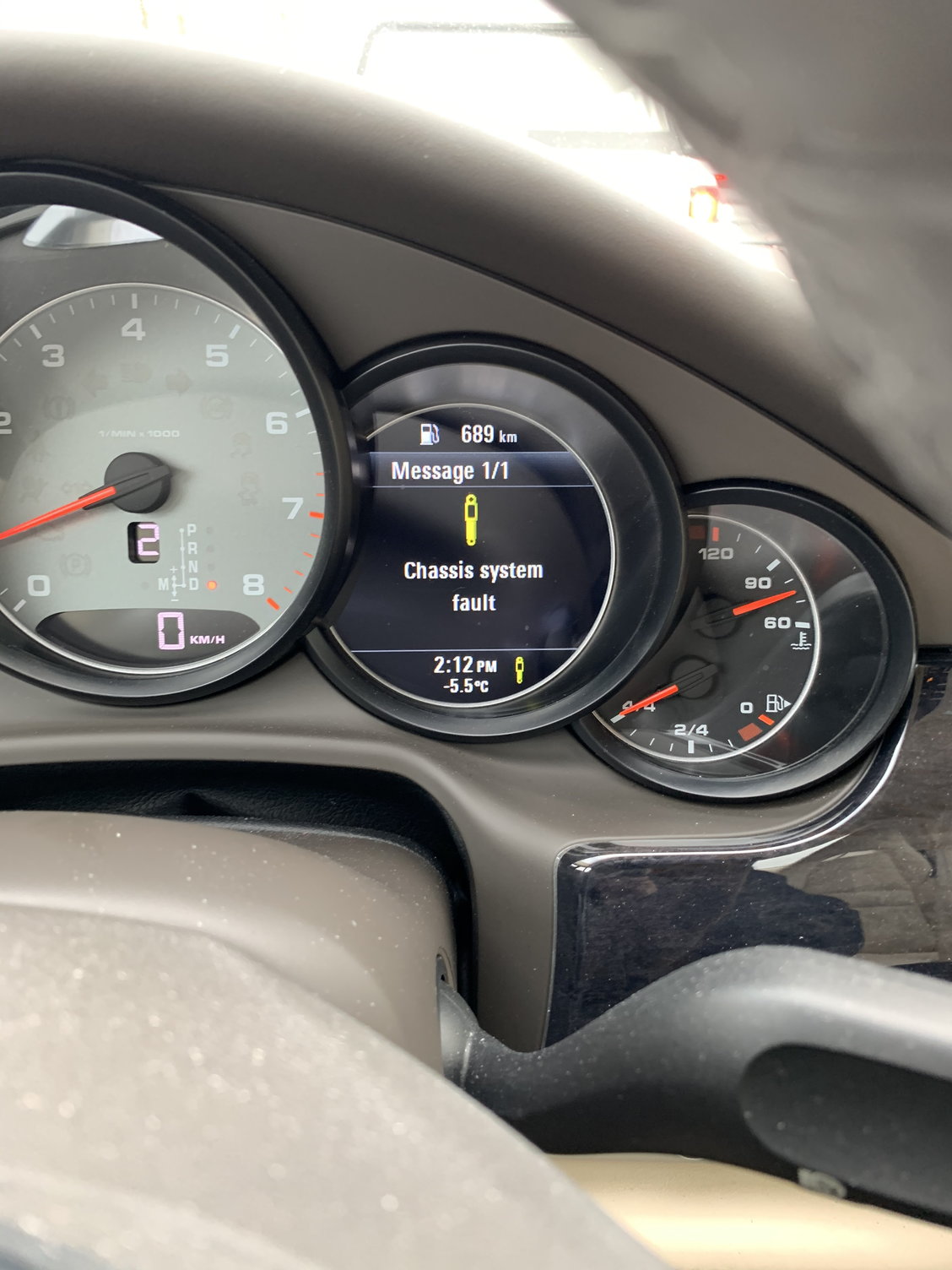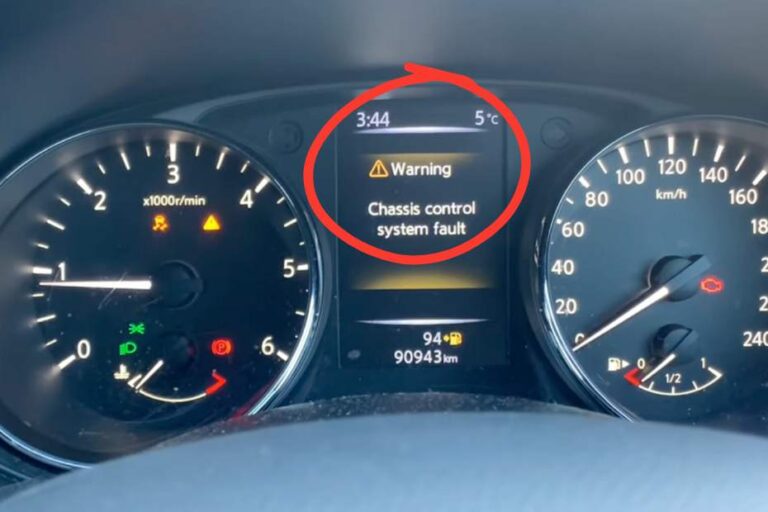Delving into the World of Chassis Control Systems
The chassis control system (CCS) is the backbone of a vehicle’s stability, handling, and overall performance. It seamlessly integrates vital components like the suspension, brakes, and steering to ensure a smooth and controlled ride. However, malfunctioning CCS can cast a shadow over your driving experience. Fear not! This comprehensive guide will illuminate the causes, symptoms, and solutions to this automotive conundrum. Let’s dive in and restore your ride’s harmony.

Image: rennlist.com
Diagnosing and Repairing CCS Faults
Unveiling the source of a CCS fault requires a meticulous approach. Begin by scrutinizing the vehicle’s behavior. Is the ride stiffer than usual? Do you feel excessive shaking or vibrations while braking? Are there any unusual noises emanating from the suspension? These telltale signs provide valuable insights into the underlying issue.
Next, connect your vehicle to a diagnostic scanner. This invaluable tool will interrogate the CCS, deciphering any error codes or stored data that reveal the root cause. Armed with this information, you can formulate a targeted repair strategy.
Common Causes of CCS Issues
- Faulty sensors: Sensors located throughout the vehicle collect crucial data on suspension position, wheel speed, and steering angle. A malfunctioning sensor can disrupt the CCS’s ability to accurately control the vehicle’s dynamics.
- ABS problems: The anti-lock braking system (ABS) works in tandem with the CCS to prevent wheel lockup during braking. A faulty ABS unit can compromise the CCS’s efficiency, leading to reduced braking performance and stability issues.
- Electronic control module (ECM) glitches: The ECM serves as the brain of the CCS, processing sensor data and coordinating the system’s actions. If the ECM encounters glitches or malfunctions, it can wreak havoc on the CCS’s functionality.
- Wiring harness issues: Loose connections or damaged wires within the CCS wiring harness can disrupt the flow of data and power, causing intermittent or persistent faults.
- Mechanical component wear and tear: Over time, mechanical components like suspension struts, shock absorbers, and steering linkages can wear down, leading to reduced CCS effectiveness and potentially causing faults.
Professional Repair or DIY?
Addressing CCS faults requires specialized knowledge and equipment. While some simple repairs may be within the realm of a seasoned DIY enthusiast, it’s generally advisable to entrust complex issues to certified mechanics. Their expertise and access to specialized tools ensure accurate diagnosis and professional repair.

Image: carjustify.com
Expert Tips for Preventing CCS Faults
- Regular maintenance: A proactive maintenance schedule is paramount for preventing CCS faults. Follow the manufacturer’s recommended maintenance intervals for fluid changes, brake inspections, and suspension checks.
- Tire care: Maintaining proper tire inflation and alignment reduces excessive wear and strain on the suspension and steering components, which can contribute to CCS issues.
- Responsible driving: Avoid exposing your vehicle to extreme driving conditions or excessive stress, as this can accelerate wear and tear on the CCS components.
- OEM components: Use genuine or high-quality aftermarket parts when replacing components to ensure compatibility and reliability within the CCS.
Frequently Asked Questions
-
Q: Can I drive my car with a CCS fault?
A: Driving with a CCS fault is not recommended. It can compromise vehicle stability, braking performance, and overall safety. -
Q: How much does it cost to fix a CCS fault?
A: The cost of repairing a CCS fault varies depending on the specific issue and the vehicle model. However, expect to pay between $300 and $2,000 for repairs. -
Q: How can I extend the lifespan of my CCS system?
A: Regular maintenance, responsible driving, and timely repairs play a vital role in prolonging the CCS’s lifespan.
How To Fix Chassis Control System Fault
https://youtube.com/watch?v=HiFRxoQKqL0
Conclusion
Understanding and addressing chassis control system faults is crucial for maintaining a safe, reliable, and enjoyable driving experience. Whether you tackle repairs yourself or entrust them to a mechanic, armed with the knowledge presented in this guide, you can effectively restore your vehicle’s handling prowess.
Fellow readers, are you intrigued by the intricate workings of chassis control systems and their critical role in vehicle performance? Share your thoughts and experiences in the comments section below!